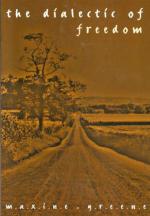|
This section contains 5,821 words (approx. 20 pages at 300 words per page) |

|
SOURCE: "The Influence of William James on John Dewey's Early Work," in Journal of the History of Ideas, Vol. XLV, No. 3, July-September, 1984, pp. 451-463.
In the following excerpt, Buxton examines the movement of Dewey's thought from idealism to pragmatism, and identifies William James as a singular influence on the evolution of Dewey's beliefs.
William James has generally been regarded as the source of John Dewey's rejection of neo-Hegelian absolute idealism in favor of a naturalist position. The intellectual relationship between the two men during the late nineteenth and early twentieth centuries is an important aspect of the history of American philosophy and psychology. Their early association occurred when Dewey was developing his philosophy of education. Yet until recently, Dewey's early work between the years 1882-1899 has been relatively ignored. This has led to the general acceptance of the myth of James's central influence over Dewey particularly between the...
|
This section contains 5,821 words (approx. 20 pages at 300 words per page) |

|


